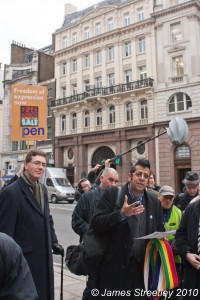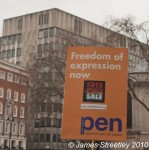Continuing the epic week for skepticism, libel reform and science (see previous posts), today the Culture,Media and Sport Committee published a report entitled “Press standards, privacy and libel”. Reporting of this has mainly (but not solely) focused on the privacy and press standards parts which have several high profile facets to them, not the least the “phone-hacking” scandal from News International.
In terms of there recommendations for libel reform, coverage has been thin on the ground, so here are their salient points:
Paragraph 129 calls for investigation into into preliminary hearings on meaning (familiar to those following Simon Singh’s case) and how they could cut costs by deciding cases earlier, although with the caveat that this doesn’t always work.
We urge the Government, therefore, to look closely at this aspect[hearings on meaning] of procedure in its present review of the costs and operation of UK libel laws.
They also talk about the burden of proof and how it should lie. They basically conclude that it is more or less right for defendants to prove their allegations, but also noting that
We are concerned, however, to see cases where that burden becomes overly onerous
and that there should be an exception for big corporations as claimants, when the burden of proof should be reversed.
address the mismatch in resources between wealthy corporations and impecunious defendants … We also consider that it would be fairer to reverse the general burden of proof in such cases
The report goes on to talk about strengthening a ‘responsible journalism’ defence, where by if the story has been properly researched and in the public interest then the statements made in it are protected. It also comes up with a lot of welcome and needed thoughts on “libel tourism” and the place of libel on the internet and the much needed and relatively obvious updating of libel law that is required regarding the internet, the blogosphere and the availability of information internationally and how different jurisdictions should deal with it.
Finally, and of most weight for those campaigning for libel reform from the scientific perspective is Paragraph 142.
We look forward, clearly, to the outcome of the important Simon Singh case. Even from the limited evidence we have received, we believe that the fears of the medical and science community are well-founded, particularly in the internet age and with the growth of ‘libel tourism’. We urge the Government, therefore, to take account of these concerns in a review of the country’s libel laws, in particular the issue of fair comment in academic peer-reviewed publications.
I think that is probably the best two sentences that people campaigning for libel reform could have hoped for. Let’s hope the report’s recommendations are taken on board.
edit @ 15:12. Realised I’d blockquoted one of my own paragraphs and not a quote from the report. Now fixed.




